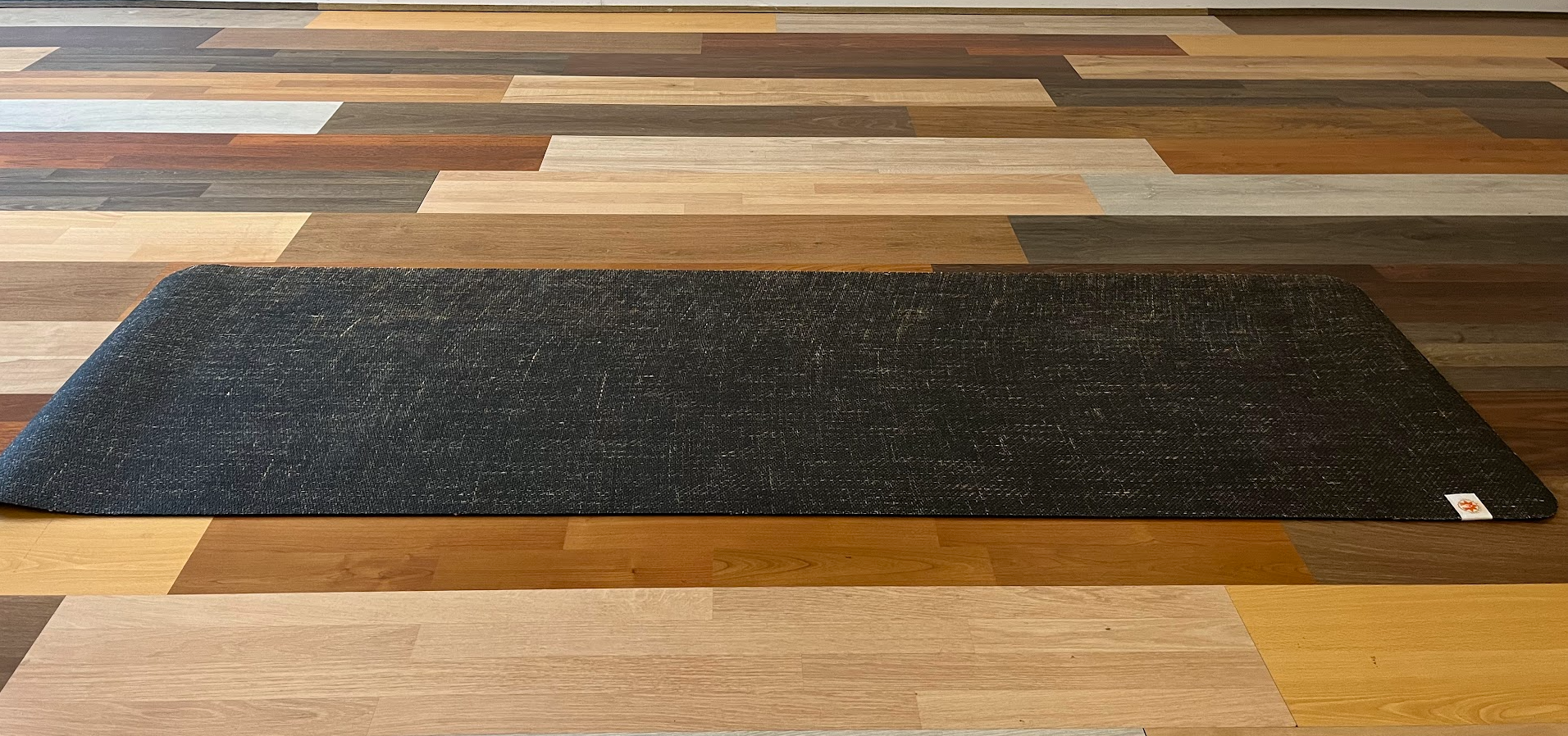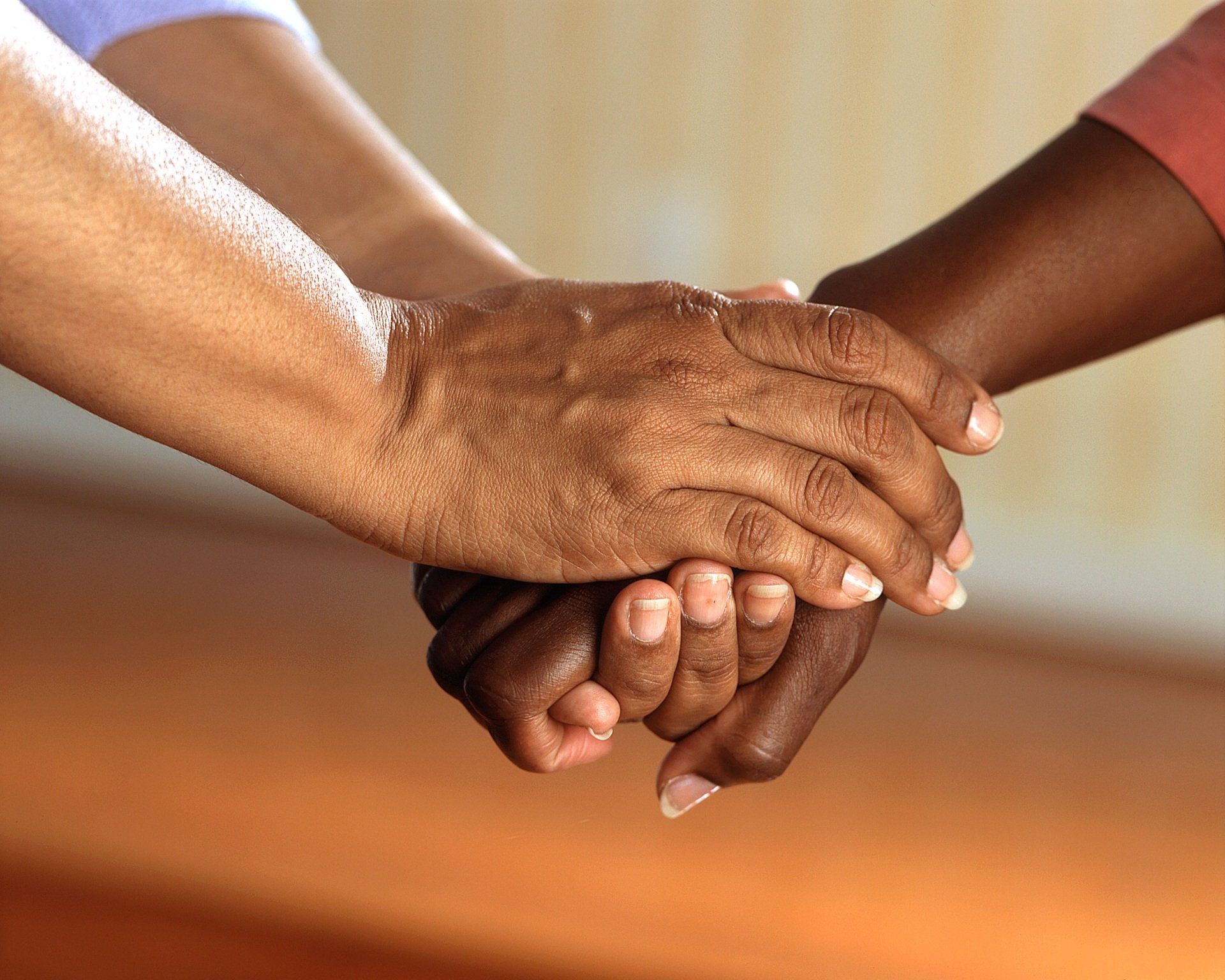
By PJ
•
June 5, 2023
What is something that all humans have in common? After decades of interviewing a range of individuals from Barack Obama to Beyonce to top entrepreneur's and everyday folk, Oprah Winfrey shared that at the end of each interview, her guest would turn to her and quietly ask ‘Was that OK?’ It was through these moments that she discovered that most of us are asking the following questions as we move through life:

By PJ
•
February 27, 2023
I'm all too familiar with staying in a 'safe space' of what is familiar or comfortable but I've learnt over the years that I need to become comfortable with discomfort (although this is a daily practice). Particularly when it comes to trying new things. We might stay in our comfort zone for many reasons: fear of looking silly, fear of failure, fear of judgement, fear of truly being seen, fear of not living in the box that we have put ourselves in, or that others have put us in (how obedient of us!) The list goes on. I've discovered however, that once we courageously push through a fear, it's amazing how the force of that fear loses momentum and we realise that the worst part of the experience was fear itself. Often the outcome is a lot more underwhelming than we might have thought! You might ask yourself, Why on earth was I so afraid? The good news is, for that bravery we are usually rewarded in some way. Whether its learning a new skill, building confidence in a certain area, making a new connection, gaining respect for ourselves or from others, or even learning a lesson if things don't go the way we had hoped. Most importantly we strengthen our courage 'muscle' 💪
2023 CLOTHING REVIEWS

By PJ
•
February 15, 2024
When it comes to yoga mats, I’m fairly particular and if you are a seasoned yogi, you might be too. This stems from the fact that I’ve tried many different types over the years and some have proven to be more functional than others. A particular gripe of mine, is when a yoga mat causes your body to slip or slide around during a practice. There is nothing worse than trying to find balance and stability whilst your feet or hands are sliding around during downward dog or warrior 2! I decided to give the Sustainable Non-Slip Jute Mat a go to see if it lived up to its promise. Summary For me, the main pros of this mat are the incredible grip, the sustainable materials used, and the aesthetically pleasing design. It’s a mat that can be used across all forms of yoga, made by a company that has the planet and its people in mind.

By PJ
•
December 2, 2023
NB: Sweaty Betty recently updated the 'Gary Yoga pants' to the ' Gaia Yoga Pants'. The below review is reviewing the original product. If you were interested in the new and updated version, i've included links to the Gaia pants in the article below. To kick this off, I’ll admit that I don’t usually like to wear loose bottoms whilst practicing yoga. I’ve always preferred form fitting yoga clothes, mainly because I don’t like fabric bunching and limiting my movement. I also find it quite distracting when the fabric of your clothes shifts and needs to be readjusted. However, I wanted to give the Gary Cropped Yoga Pants a go, simply because they seem to have a firm fan base in the yoga world, particularly in the cropped version. Summary I actually love these pants. Not only for practising yoga, but also for wearing casually. I’ve owned these for 6 months now and have worn and washed them many times and can confirm that they are a quality product. Whilst these are a loose fit, they are not so loose that they are baggy. The fabric is next level soft, and the cuffs on the leg provide a stylish shape. I’d recommend these to anyone who wants some looser pants to practice yoga in, or anyone who is looking for some casual bottoms to wear out and about.

By PJ
•
October 9, 2023
I have been wanting to try out the Align tank for a LONG time now as I’ve heard many people rave about it. On top of that, a fitted V-neck silhouette is probably one of my favourite designs in a yoga top. However, if you take a look at the reviews on the lululemon website, you will notice that whilst there are many fans of this top, there is still a decent amount of people who have criticisms of it. Therefore, this sets the scene for an interesting review. Summary The Align Tank is part of the wider ‘Align’ Collection which started with the Align leggings and has now branched out to tops and bras. It has a flattering design, comfortable fabric and light support that carries you through your yoga practice. I personally struggled a bit with choosing the right size, but after testing it out over numerous yoga practices, I can confirm that this tank is a 'Yes' from me.

By PJ
•
August 18, 2023
The Power Cycling Shorts by Sweaty Betty are one of their most popular styles and they come in several different lengths. Whilst these were not made with yoga in mind, I had previously heard others mention how they enjoyed wearing these to practice in. Naturally, I was intrigued so I thought I’d give these a go! Summary These are a versatile pair of shorts in that they can be used for a range of different activities. Due to the medium compression fabric and sculpting seam lines, they are a durable option that provide you with great support. Since these aren’t specifically designed for yoga, they won’t be everyone’s cup of tea. However, if you are fairly easy going with what you wear to yoga, you might find that these are an excellent pair of shorts that can take you from the yoga studio, to the gym, for a run etc.

By PJ
•
July 11, 2023
OK, I'll admit that I sometimes trawl through the Sweaty Betty website considering my next purchase, and the Super Soft Crop Strappy Vest is an item that I had come back to many a time before finally deciding to take the plunge and give it a go. In fact, Sweaty Betty has a whole collection called the Super Soft family which features clothing designed for yoga. If you were interested, I’ve also reviewed the leggings from this range. Anyway - onto this review! Summary The Super Soft Crop Vest was created with yoga, pilates and barre in mind and I must say that It is a thoughtfully designed item. It has lovely soft fabric, a fitted design that still allows you to breathe easily and the strappy back detail creates a fun and interesting feature. All in all, I’m a big fan of this top and I quickly realised that it was going to be difficult to find many faults with it. However, do read on if you are interested in the further nitty gritty details!
COMPARE

By PJ
•
August 24, 2023
I decided to compare the All Day Shorts and the Power Cycling Shorts which are both from Sweaty Betty as they look fairly similar to the untrained eye and I was aware that people out there were wearing both styles to yoga. In saying that, one is more expensive than the other, and in my experience they both are completely different in terms of fit and function. If you were wondering how they compare to each other then do read on.

By PJ
•
August 21, 2023
The Lululemon Align™ High-Rise Pants and the Sweaty Betty Super Soft Yoga Leggings often get compared as they are both from well known, premium brands and are highly rated by customers. However, apart from the fact that they sit at a similar price point and are both designed for yoga, there are some fairly noticeable differences between them. The below comparison chart was created to shed some light on which leggings might be best for you - hope this helps!
PRODUCT COMPARISONS

By PJ
•
August 24, 2023
I decided to compare the All Day Shorts and the Power Cycling Shorts which are both from Sweaty Betty as they look fairly similar to the untrained eye and I was aware that people out there were wearing both styles to yoga. In saying that, one is more expensive than the other, and in my experience they both are completely different in terms of fit and function. If you were wondering how they compare to each other then do read on.

By PJ
•
August 21, 2023
The Lululemon Align™ High-Rise Pants and the Sweaty Betty Super Soft Yoga Leggings often get compared as they are both from well known, premium brands and are highly rated by customers. However, apart from the fact that they sit at a similar price point and are both designed for yoga, there are some fairly noticeable differences between them. The below comparison chart was created to shed some light on which leggings might be best for you - hope this helps!
BLOG

By PJ
•
June 5, 2023
What is something that all humans have in common? After decades of interviewing a range of individuals from Barack Obama to Beyonce to top entrepreneur's and everyday folk, Oprah Winfrey shared that at the end of each interview, her guest would turn to her and quietly ask ‘Was that OK?’ It was through these moments that she discovered that most of us are asking the following questions as we move through life:

By PJ
•
February 27, 2023
I'm all too familiar with staying in a 'safe space' of what is familiar or comfortable but I've learnt over the years that I need to become comfortable with discomfort (although this is a daily practice). Particularly when it comes to trying new things. We might stay in our comfort zone for many reasons: fear of looking silly, fear of failure, fear of judgement, fear of truly being seen, fear of not living in the box that we have put ourselves in, or that others have put us in (how obedient of us!) The list goes on. I've discovered however, that once we courageously push through a fear, it's amazing how the force of that fear loses momentum and we realise that the worst part of the experience was fear itself. Often the outcome is a lot more underwhelming than we might have thought! You might ask yourself, Why on earth was I so afraid? The good news is, for that bravery we are usually rewarded in some way. Whether its learning a new skill, building confidence in a certain area, making a new connection, gaining respect for ourselves or from others, or even learning a lesson if things don't go the way we had hoped. Most importantly we strengthen our courage 'muscle' 💪

By PJ
•
February 10, 2022
Over the past couple of years I've been studying the practice of self-compassion. Before I started delving into this topic, I probably couldn’t have given you a clear definition of what this term really meant. It sounded lovely in my head but I didn’t really have the understanding of what it really was to put it into words. Kristen Neff PhD is a pioneer in this topic and what I've written below is inspired by her comprehensive work that she has done on the topic of compassion. SO, what is self-compassion? Self compassion is the sum of three components: Mindfulness Self-Kindness Common Humanity When we practise self compassion we are treating ourselves like we would a dear friend and becoming an ally for ourselves (self-kindness). This doesn’t mean that we are ‘letting’ ourselves get away with destructive behaviour as an important distinction is that we are practising self compassion with wisdom. Self compassion allows us to acknowledge our suffering by turning towards it (mindfulness), offering ourselves kindness and understanding, acknowledging that we all suffer (common humanity) and then moving forward. It is a practice which means it isn’t always easy and we can experience distress upon offering ourselves self compassion. This can be a good sign and it is something that needs to be worked with via allowing, reducing or regulating. Why is it useful? Self compassion is useful because it allows us to free ourselves from ourselves. Meaning, our harsh inner critic is often the one that is holding us back in life. For example it might hold us back from trying new things. Our inner critic might tell us that we aren’t capable of something or that we are a bad person for making a mistake which could cause us to feel unworthy of love or connection with others. When we are able to greet ourselves like a friend, from a genuine place, we are more likely to move about the world with ease. When we do inevitably fail or slip up, which we all do, we are able to pick ourselves back up with kindness and brush ourselves off by acknowledging the pain, learning from it, but then moving on without ruminating or prolonging suffering. Self compassion is also useful, as it means that we are more likely to take personal responsibility for actions and avoid repeating mistakes - which is backed up by research findings. It also allows us to acknowledge that we are connected to all other living beings and that we must practice compassion towards others as they are imperfect just like ourselves.




